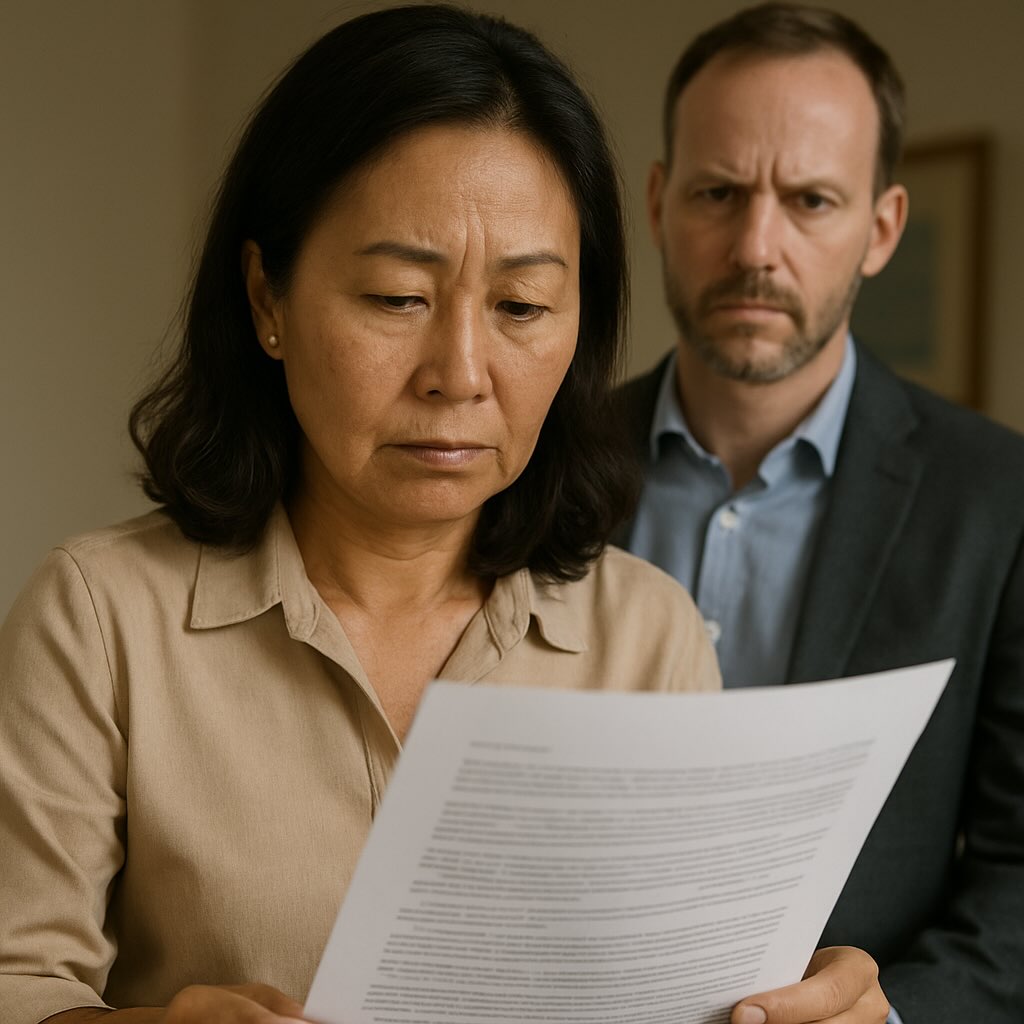Inheritance Rights of a Surviving Spouse in Thailand
How much does your Thai wife get when you die? The answer may surprise you. Thailand’s inheritance laws can be challenging, especially when it involves understanding the rights of a surviving spouse under Thai law. There is good news however – the Thai Civil and Commercial Code provides clear guidelines on how a deceased person’s estate is distributed among heirs, with specific provisions for surviving spouses.
Classes of Statutory Heirs
Under Section 1629 of the Thai Civil and Commercial Code, statutory heirs are categorized into six classes, prioritized as follows:
- Descendants
- Parents
- Full-blood siblings
- Half-blood siblings
- Grandparents
- Uncles and aunts
The presence of heirs in a higher class excludes those in lower classes from inheritance. For instance, if the deceased has surviving children, the parents or siblings do not inherit.

Surviving Spouse’s Inheritance Rights
The surviving spouse is recognized as a statutory heir with specific entitlements outlined in Section 1635 of the Civil and Commercial Code. The share of the estate that the surviving spouse receives depends on the presence of other heirs:
- With Descendants: The spouse shares equally with the children. For example, if there are three children, the estate is divided into four equal parts, with the spouse receiving one part.
- With Parents or Full-Blood Siblings: The spouse is entitled to half of the estate.
- With Half-Blood Siblings, Grandparents, or Uncles/Aunts: The spouse receives two-thirds of the estate.
- No Other Heirs: The spouse inherits the entire estate.
Special Considerations
- Multiple Spouses: If the deceased had multiple wives legally recognized before the enforcement of the current Civil and Commercial Code, all are entitled to inherit. However, each secondary wife is entitled to inherit half the share of the principal wife.
- Life Insurance and Annuities: If the surviving spouse is a beneficiary of the deceased’s life insurance or annuity, they are entitled to receive the full amount. However, they may be required to compensate the estate if premiums were paid using marital property beyond the deceased’s means.
Importance of a Will
While the Civil and Commercial Code provides a framework for inheritance, having a valid will allows individuals to specify how their estate should be distributed, potentially overriding the default statutory provisions. A well-drafted will can provide clarity and prevent disputes among heirs.
Understanding the nuances of Thai inheritance law is crucial for surviving spouses to ensure their rights are protected. Consulting with legal professionals experienced in Thai family law can provide guidance tailored to individual circumstances. If you have questions about how much your Thai wife will receive when you die, please contact TFL at info@thailandfamilylaw.com today.


